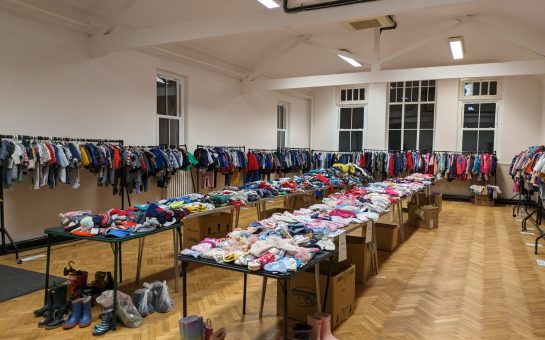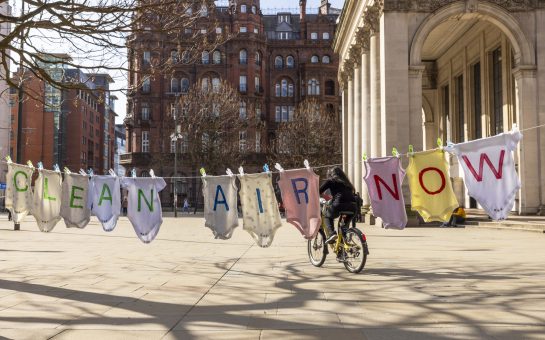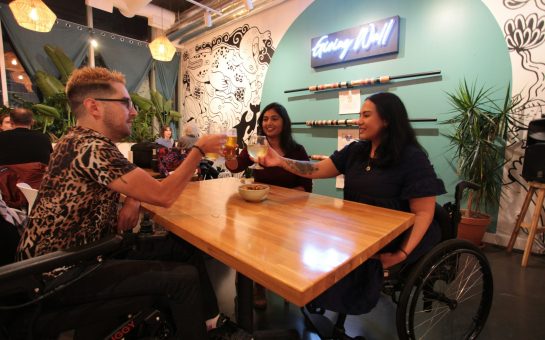A new play is set to explore the lives of a performing Native American tribe who entertained the residents of Salford in the 19th century.
Former Corrie actor Chris Hoyle recently held an event to discuss his new play, Two Spirits, which delves into what happened during the Wild (North) West.
Unbeknown to most, in 1887, what is now the site of the Lowry Centre, hosted Buffalo Bill’s Wild West show and one hundred Native Americans from the Oglala Sioux, the tribe portrayed in the 1990 film Dances with Wolves, camped on the banks of the River Irwell.
Chris, whose first play, The Newspaper Boy, debuted in 2010, said: “The story touches on immigration and acceptance and people forget some of the Native Americans didn’t return and made Manchester and Salford their home.”
He added: “They would’ve faced a lot of racism in Manchester at that time.”
Locals liked the show, aided by 180 broncos and 18 buffalo, so much it stayed for five months.
In the largest indoor arena in Western Europe at the time, Sioux warriors and cowboys performed daring horsemanship and re-enacted classic Wild West gunslinging scenes.
Salford councillor Stephen Coen, Assistant Mayor and responsible for International Relations, is working alongside Chris on the project, a piece which deals with issues just as relevant today as they were back then.
Cllr Coen has been researching this exciting period in the city’s history for several years and is keen to involve the Sioux themselves.
He told MM: “We don’t want a patronising portrayal of the native life. We want to make them part of it and not just the subject matter.”
A community discussion was held on Monday in the hope to possibly even uncover some descendants still living in the city, as they were reported to have been very friendly with the locals.
“The Sioux did have relationships with local women but it was seen as scandalous then to have a child out of wedlock, especially to an Indian, who were even referred to as ‘savages’ in a newspaper article in 1887,” Cllr Coen said.
“Nowadays, people celebrate mixed race relationships but not in the Victorian era.”
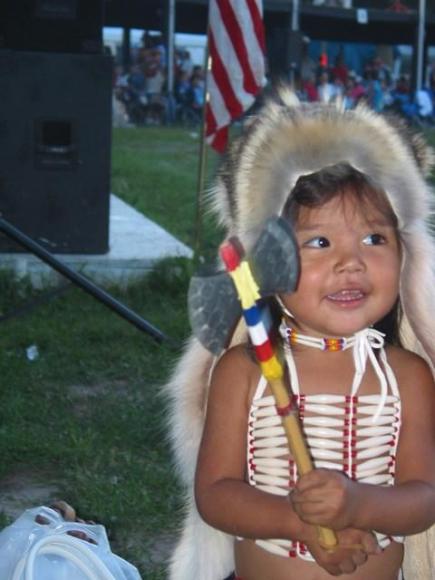
LITTLE WARRIOR: The Sioux fought hard against the US cavalry
The last known descendant was Rita Parr from Gorton, who died about four years ago, and was believed to be related to ‘Charging Thunder’.
One small Sioux girl is also known to have been baptised at St Clement’s church before disappearing from the history books while ‘Surrounded’, a 6ft 7 warrior, died of a chest infection in his tepee on Salford Quays.
Many of the Sioux were veterans of the American battle, Little Big Horn, and were on the run from the US cavalry.
Councillor Coen has visited the Oglala tribe, one of the seven subtribes of the Lakota people, which counts Sitting Bull, Crazy Horse and Black Elk among its members, in America.
His interest in the tribe began when he saw a picture on a bus of Native Americans on a Manchester tram.
He says history is very important to the tribe, who live on in Salford in the form of street names such as Buffalo Court and Dakota Avenue, but the Sioux are very practical people and want to plan what to do in the future.
Those plans include inhabitants of the Pine Ridge reservation teaching the Lakota language, spoken in the film Dances with Wolves, via Skype to members of Salford Lads’ Club.
Cllr Coen, who has been out to the reservations himself, said: “It isn’t that hard to learn, it will be easy for the English to pick up.”
They also plan to teach the Lads how to erect a tepee and teach them some Native American cooking.
A totem pole has also been salvaged from the Salford docks and is being restored.
Asked about the Native Americans’ current way of life, he told MM: “They are evolving to a modern way of being traditional.
“They use Facebook, they are very sophisticated. I want to help give them a voice, to teach them video techniques.”
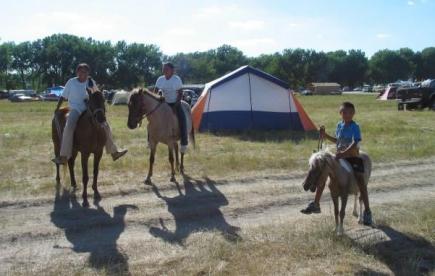
MODERN LIFE: The Sioux have adapted to the life in the 21st century
Cllr Coen added that we could learn from the more traditional aspects of their culture such as family values and looking after the vulnerable.
He said: “The Sioux believe we are all related, that everyone is in a community, not in isolation.
“In our society, we push elderly people out and maybe we need to bring them back into our families.
He added: “It is a lot more rewarding when you have the people themselves involved.
“The Lakota people are very intellectual, expressive, deep thinking and into the Arts.”
They are also avid football fans. The young Sioux from Red Cloud High School can regularly be seen on the reservation practising their unique style of ‘keepy-uppy’, with the ball to the drum beats of the Lakota pow-wow.
As far as avoiding stereotypes goes, Chris said: “We do have this Hollywood label of what we consider Native Americans to be.
“The shows were performed in a really hammy way but the more I get to know the real culture, the more I fall in love with them.”
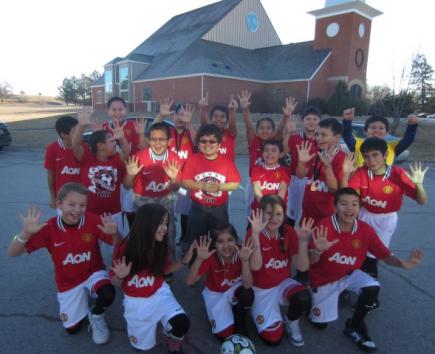
RED DEVILS: Young Lakota show their support for Manchester United
Chris said it was an item in a newspaper that alerted him to the tribe, who number about 30,000 and live on a reservation approximately the size of Wales.
He then entered the idea for his play, which will open next year, into the Re:Play Festival Pitch Party competition run by Home, a merger of two of Manchester’s best-loved arts organisations, Cornerhouse and the Library Theatre Company, to open in Spring 2015.
The themes of the play are love, friendship, immigration and acceptance. It tells the story of two Sioux who decided, on the day their show was leaving Manchester, not to go.
Chris explained that ‘two spirits’ is the umbrella name given to the LGBT community.
He told MM: “Some tribesmen in native America have always recognised gay marriage.
“It was considered a gift, you had two spirits inside you, not one, and it was nurtured in a child.”
